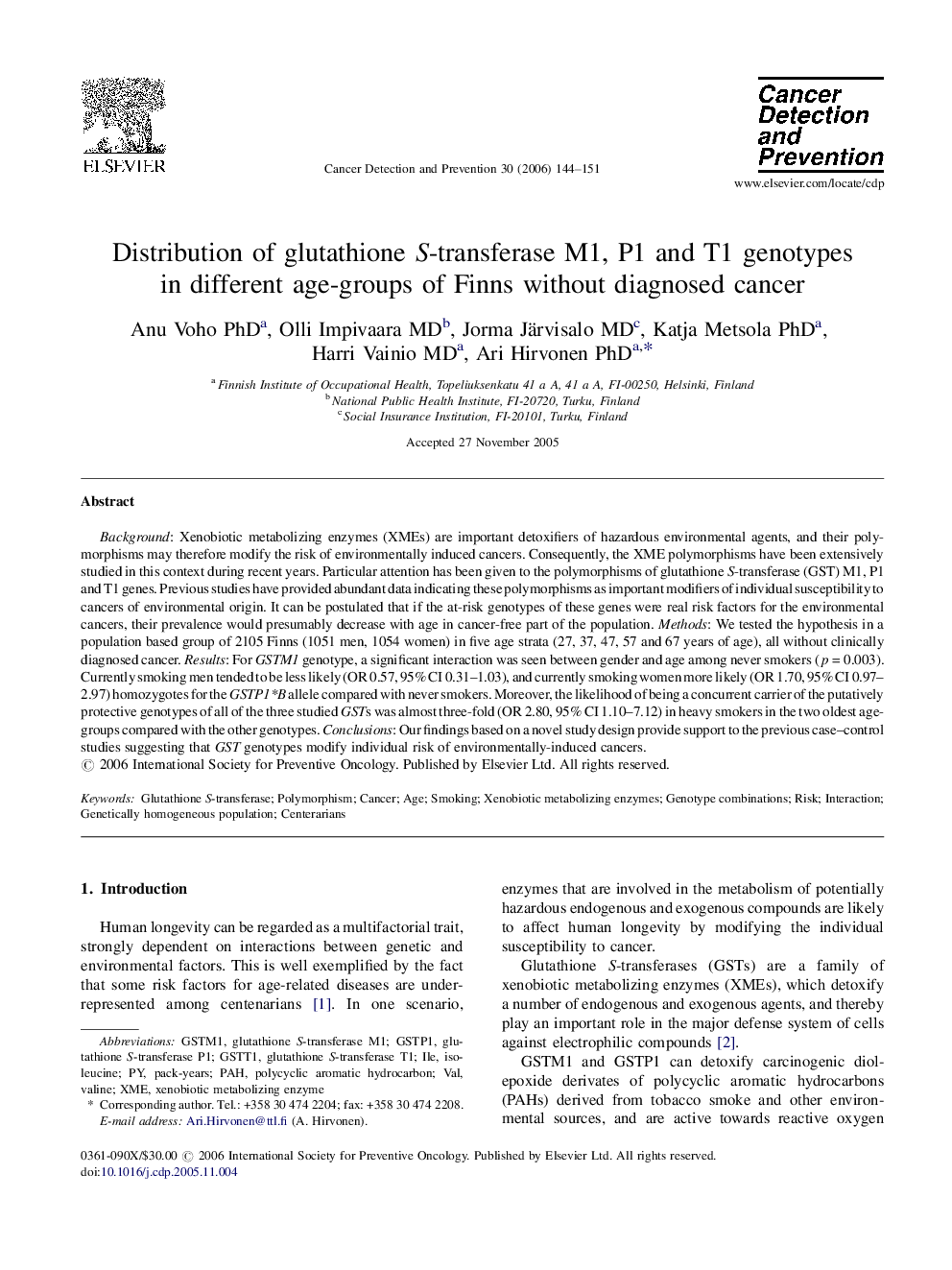| Article ID | Journal | Published Year | Pages | File Type |
|---|---|---|---|---|
| 2108791 | Cancer Detection and Prevention | 2006 | 8 Pages |
Background: Xenobiotic metabolizing enzymes (XMEs) are important detoxifiers of hazardous environmental agents, and their polymorphisms may therefore modify the risk of environmentally induced cancers. Consequently, the XME polymorphisms have been extensively studied in this context during recent years. Particular attention has been given to the polymorphisms of glutathione S-transferase (GST) M1, P1 and T1 genes. Previous studies have provided abundant data indicating these polymorphisms as important modifiers of individual susceptibility to cancers of environmental origin. It can be postulated that if the at-risk genotypes of these genes were real risk factors for the environmental cancers, their prevalence would presumably decrease with age in cancer-free part of the population. Methods: We tested the hypothesis in a population based group of 2105 Finns (1051 men, 1054 women) in five age strata (27, 37, 47, 57 and 67 years of age), all without clinically diagnosed cancer. Results: For GSTM1 genotype, a significant interaction was seen between gender and age among never smokers (p = 0.003). Currently smoking men tended to be less likely (OR 0.57, 95% CI 0.31–1.03), and currently smoking women more likely (OR 1.70, 95% CI 0.97–2.97) homozygotes for the GSTP1*B allele compared with never smokers. Moreover, the likelihood of being a concurrent carrier of the putatively protective genotypes of all of the three studied GSTs was almost three-fold (OR 2.80, 95% CI 1.10–7.12) in heavy smokers in the two oldest age-groups compared with the other genotypes. Conclusions: Our findings based on a novel study design provide support to the previous case–control studies suggesting that GST genotypes modify individual risk of environmentally-induced cancers.
